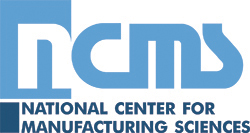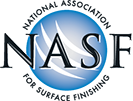Historical Articles
March, 1952 issue of Plating
Washington Orders
Copies of NPA orders and publications may be obtained from National Production Authority, Washington 25, DC., or from any of its local offices.
Allotment and DO numbers and symbols. The DPA revised its list slightly on January 11.
Copper.—The procedure for self-authorization by which small users can obtain copper was tightened by an amendment to CMP Regulation 1, Direction 1, dated January 5.
CMP Regulation 1 was itself twice amended on January 5 to permit users to charge a delayed shipment of copper to the originally scheduled quarter, and to provide that manufacturers of “Class B” products must not use copper in inventory in addition to the quarterly allotment unless expressly authorized to do so.
An amendment of January 23 to copper Order M-ll redefined “brass-mill products” to include anodes, rolled, forged or sheared from cathodes. Other revisions brought the order up to date but did not change the rules.
The various products in Schedule I of Order M-47B, Consumers Durable Goods, were regrouped in an amendment dated January 15 to agree with current allotments.
Order M-97, Lighting Fixtures, issued on February 4, restricted the use of copper to specified parts, but permitted the copper plating of such fixtures.
Fifteen thousand eight hundred tons more of copper, about 1 per cent of the U. S. annual consumption of about 1,400,000 tons, will be made available from Canada this year.
Jobshop meeting.—The Electroplating Industry Advisory Committee, which represents an estimated 3,500 firms, of which a majority employ less than 10 men, at its meeting on January 20 stated that the job shops can maintain themselves on 15 per cent of their base-period use of nickel anodes by employing thinner coatings. They cannot, however, obtain needed nickel even for permitted operations under Order M-80, although large quantities of nickel were said to be offered by black-market sources.
The committee asked (1) that Order M-80 be liberalized, be clarified to place responsibility for conformity to end-use restrictions upon the contractor, and be revised to permit replating service, (2) that the job-shop industry’s requirements be restudied, (3) that DPA in granting certificates of necessity to manufacturers give due regard to the job-shops’ needs for orders.
Lead.—Recent softening in the world market for lead has made it possible to import the metal under more favorable conditions.
Small business.—A firm classified a small business according to the record the Department of Commerce study may not obtain assistance from a Small Business Hardship Account of Controlled Materials is it is a single-line producer and faced with failure or prolonged shutdown owing to lack of sufficient controlled materials and if plant facilities cannot be converted because it would require substantial investment or extensive retooling.
Certain functions of the Office of Small Business, NPA, have been transferred the Small Defense Plants Administration.
Copies of “Basic Tax Information for Small Business” are available free from the Division of Printing Services, U.S. Department of Commerce, Washington 25, D.C., and from all Department Commerce field offices.
Tin.—By agreement, the United Kingdom will deliver 20,000 long tons of tin to the U. S. during 1952.
Zinc.—Canada will increase its shipments of zinc to the U. S. by 31,700 tons in 1952. This is about 3 per cent of US 1951 consumption of 1,064,000 tons.
Zinc oxide is now in fair supply, according to a report from a meeting of Paint Industry Technical Committee with NPA officials.
 |
 |
 |
 |
 |
| Home | Subscribe | Regulations | Compliance Assistance | News | Resources | Resource Locators | Directories | Online Training | About | Search | NASF.org |
The information contained in this site is provided for your review and convenience. It
is not intended to provide legal advice with respect to any federal, state, or local regulation.
You should consult with legal counsel and appropriate authorities before interpreting any
regulations or undertaking any specific course of action.
Please note that many of the regulatory discussions on STERC refer to federal
regulations. In many cases, states or local governments have promulgated relevant rules and
standards
that are different and/or more stringent than the federal regulations. Therefore, to assure full
compliance, you should investigate and comply with all applicable federal, state and local
regulations.

